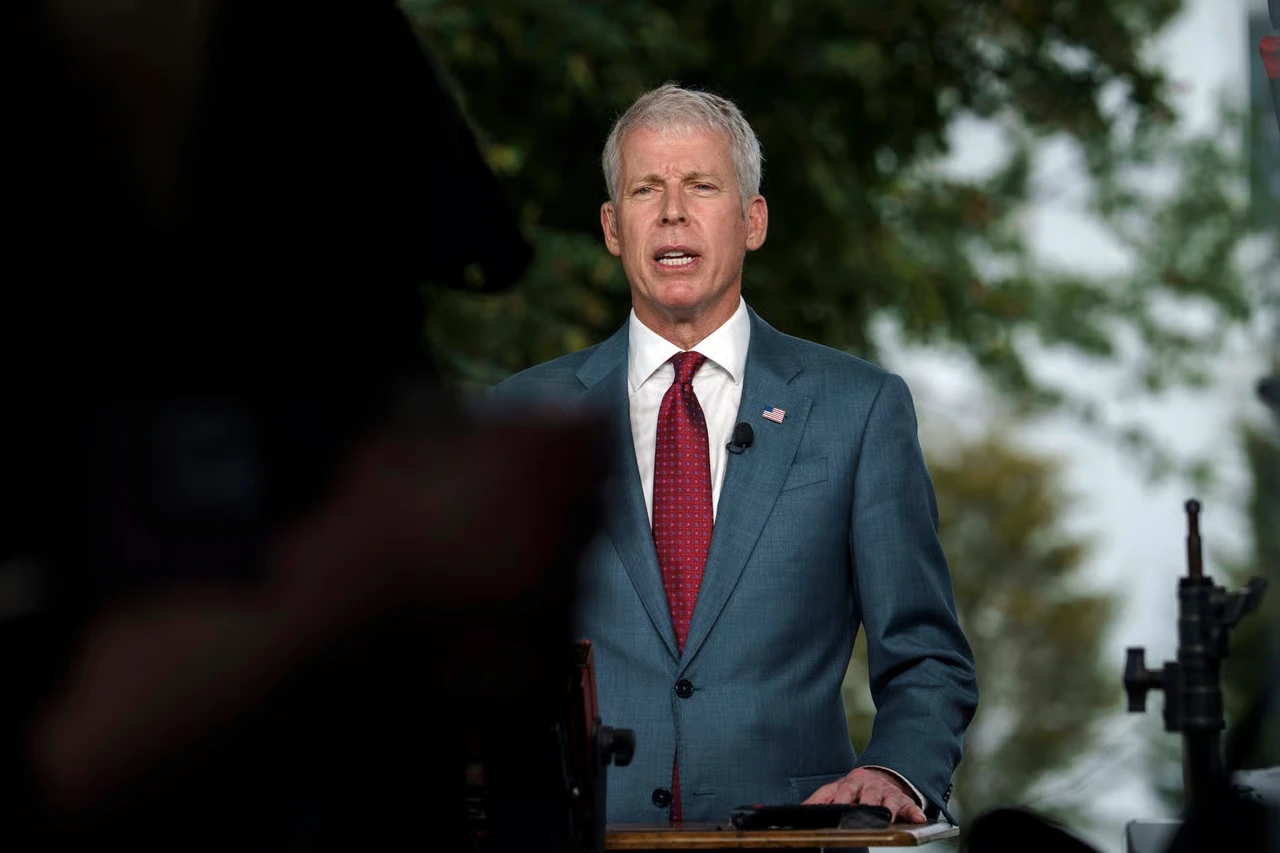According to POLITICO, U.S. Energy Secretary Chris Wright called on the remaining EU countries that continue to purchase Russian energy resources to stop obstructing the bloc-wide drive to end dependence on Moscow and to reorient supplies — including toward American LNG. Speaking on Friday in Brussels after a series of meetings with European officials, Wright stressed that it is safer and more advantageous for Europe to obtain energy “from friends.”
Asked by POLITICO whether countries such as Hungary and Slovakia, which oppose the European Commission’s plans to phase out Russian gas, should finally end their energy dealings with the Kremlin, the energy chief answered unequivocally: “Absolutely.”
“We want to displace all Russian gas. President Donald Trump, America, and all the nations of the EU want to end the Russia-Ukraine war. The more we can strangle Russia’s ability to fund this murderous war, the better for all of us. So the answer to your question is absolutely,” said Chris Wright.
Wright also addressed nuclear energy, urging European countries to seek alternatives to Russian technologies:
“We want to see nuclear technology coming from the United States or produced within the European Union itself.”
The context for his remarks was strengthened by a court decision at the EU level. A day earlier, the Court of Justice of the European Union ruled that the European Commission erred when it allowed Budapest to grant state aid for a major expansion of nuclear power with participation from Russian entities. The court said officials should have assessed whether construction of the Paks II plant, in partnership with the state corporation Rosatom, breached public-procurement rules.
Hungary’s Prime Minister Viktor Orbán — a longtime supporter of the Paks II project — continues to criticize sanctions against Russia, including an initiative from Energy Commissioner Dan Jørgensen to phase out all imports of Russian gas by 2027. Against this backdrop, Washington is urging its European partners to speed up diversification of supplies, primarily by increasing imports of U.S. LNG and developing the EU’s own capacity.
As POLITICO notes, Wright’s position fits into the broader approach of the administration to Europe’s energy security and the financial isolation of Moscow: the key task is to cut revenue flowing into the Russian budget and thereby weaken the Kremlin’s ability to wage war in Ukraine.
Washington’s view is straightforward: phasing out Russian gas and nuclear technologies and shifting to alternatives from the United States and within the EU is not only a sanctions policy, but a strategic overhaul of Europe’s energy architecture in favor of long-term resilience and security.
This article was prepared based on materials published by Politico. The author does not claim authorship of the original text but presents their interpretation of the content for informational purposes.
The original article can be found at the following link: Politico.
All rights to the original text belong to Politico.


















